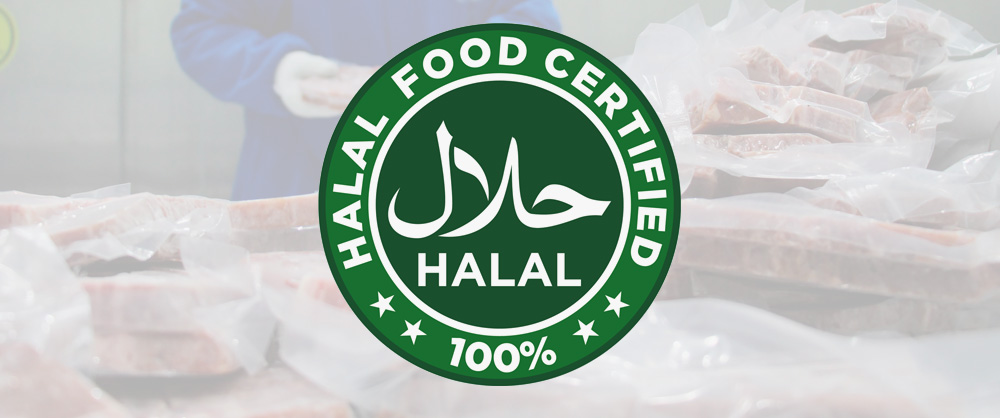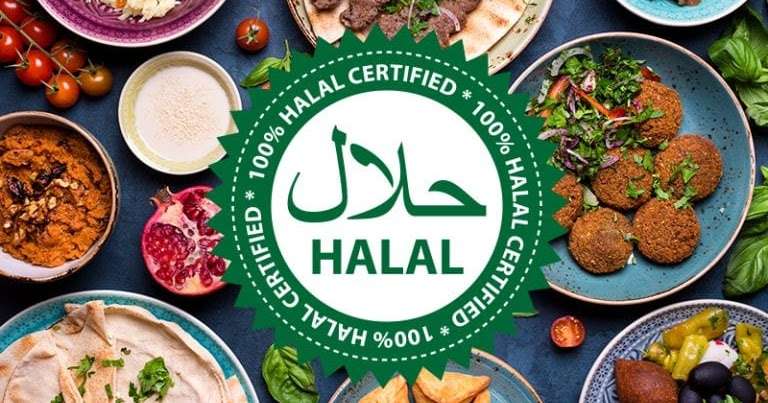Why to Choose Halal Certification?

In a world that is increasingly globalized the public is becoming more mindful of the items they buy and the ethical aspects of their production. Halal certification has become an important factor for both businesses and consumers alike, particularly in the fields of cosmetics, food and pharmaceuticals.
For companies, getting Halal certification isn’t just about compliance, but is also about opening up new markets and improving the brand’s credibility. For consumers, it guarantees high-quality, safety, and the adherence to ethical standards. Let’s examine the reasons behind opting for Halal certification is important for both business and consumer.
Understanding Halal Certification
Halal can be described as an Arabic word meaning “permissible” or “lawful,” and is connected to Islamic diet rules. Halal certification guarantees that the products are in accordance to the guidelines laid out according to Islamic principles. The process of obtaining this certification includes a thorough analysis of ingredients and manufacturing procedures as well as the packaging. It also includes logistical aspects involved with getting the product to customers. The certification is granted by authorized organizations and conforms to internationally accepted standards, which ensures that the products meet the demands for Muslim consumers.
Expanding Market Reach
One of the major reasons that businesses seek Halal certification is the ability to reach the huge and rapidly growing world Muslim population. According to studies, the world’s Muslim population is expected to increase to 2.2 billion in 2030 which makes Halal one of the fastest growing segment of the population.
Halal-certified products target this population, opening up to lucrative markets across regions like the Middle East, Southeast Asia and even further. In addition, many non-Muslim buyers are drawn to Halal products due to their perceived high quality and ethical standards.
A Competitive Edge in the Industry
Halal certification distinguishes businesses from their competition. It is a sign of trust, indicating to buyers they have passed strict checks and is in compliance with strict moral and quality guidelines.
It can change the game, especially in the context of markets where trust is an important factor in buying decisions. If you choose Halal certification, companies can be seen as leaders in terms of quality and inclusiveness, thus promoting trust and loyalty to their brand.
Ensuring Product Safety and Quality
Halal certification doesn’t just refer to religious conformity but also stresses the importance of hygiene, safety and quality. The process for obtaining certification includes thorough inspections to ensure that the products are not contaminated as well as harmful chemicals. This strict oversight offers an additional level of security for consumers regardless of religion. In a time when the food safety crisis and quality concerns often get attention, Halal certification serves as an assurance of quality.
Transparent Supply Chain
Halal certification is a process that Halal certification process ensures transparency throughout every step of supply chain. From sourcing raw materials all the way to the final packaging, each step is examined to make sure that it is in line in line with Halal standards.
This level of transparency does not just benefits the consumer, but aids businesses to identify inefficiencies and streamline their processes. In adhering in accordance with Halal standards, businesses can increase their efficiency at work and keep a consistent level of quality.
Ethical and Humane Practices
Halal certification US demonstrates humane and ethical methods particularly in areas like the production of meat. The guidelines focus on the animal welfare as well as ensuring that they are taken care of and killed in a way that reduces pain. These guidelines are a hit with consumers who are conscious of ethical considerations when making their purchase decision-making. When they obtain Halal certification, businesses show the commitment they have to moral behavior and can dramatically improve their image and attract a wider public.
Catering to the Demand for Ethical Products
In recent time there has been a significant shift in the way consumers purchase ethical and environmentally sustainable products. Halal certification is in perfect alignment with this shift, since it focuses on principles such as sustainability animal welfare, humane treatment as well as environmentally responsible practices. When choosing Halal certification, companies can benefit from the growing need for ethical goods and appeal to customers who value accountability and transparency.
Regulatory Compliance and International Trade
If you are a business looking for international expansion, Halal accreditation is usually an essential requirement for entry into certain markets. Numerous countries with large Muslim population, like Indonesia, Malaysia, and the Gulf countries have strict regulations that require Halal certification for imports of products. Through this certification, companies can overcome regulatory hurdles and guarantee the smoothest access to these markets. Furthermore, Halal certification is recognized by a variety of international organizations and is a significant advantage for businesses involved in international trade.
Building Trust with International Partners
Halal certification plays vital role in creating trust with international distributors and partners. It is a globally accepted standard that can assure that your partners are satisfied with the quality and conformity with your product. This trust is crucial for creating long-lasting relationships and partnerships across a range of markets.
Meeting Consumer Expectations
Modern consumers are more knowledgeable and more discerning than they have ever been. They expect honesty and transparency from brands they trust. Halal certification offers consumers the assurance that a product has met the strict standards of safety, quality and ethical behavior. For Muslim consumers, it removes any doubts about the legitimacy of a product, which makes it easier to make educated purchasing decision.
Building Brand Loyalty
When customers trust an organization and trust a brand, they tend to become frequent customers. Halal certification builds confidence by demonstrating a business’s dedication to meeting the needs of customers and adhering to the highest standards. In time it will result in trust in the brand, and is vital in today’s highly competitive marketplace.
Enhancing Marketing Opportunities
Halal certification can open up many marketing possibilities for companies. Products that are certified can be identified with the words “Halal” to attract Muslim customers. In addition, businesses can take part in Halal exhibitions, trade shows and events to show off their products and meet potential buyers. The certification can also help with online marketing strategies, as numerous marketplaces and e-commerce platforms offer filters for Halal-certified items which makes it easier for customers to purchase and locate these products.
Leveraging Social Media and Influencers
Influencer marketing and social media are powerful tools to promote Halal certified products. By working with influencers that adhere to the Halal lifestyle, companies can target a specific market and establish a solid online presence. This method not only improves visibility but also increases confidence and trust among consumers.
Supporting Local and Global Communities
The decision to choose Halal certification offers benefits that go far beyond the business profit. When they adhere to Halal guidelines, businesses help improve the wellbeing of global and local communities. The focus on ethical sources, humane treatment of animals and sustainable practices are in line with the wider efforts to increase social accountability and environmental management.
Empowering Small and Medium Enterprises (SMEs)
Small and medium-sized businesses, Halal certification can be an important step. It gives access to market niches and enables them to be competitive on a global level. With the help of accreditation, SMEs can showcase their commitment to ethical and high-quality methods, thus increasing their reputation and building an ever-growing customer base.
Addressing Misconceptions About Halal Certification
Although it has many advantages, Halal certification is sometimes confused or interpreted as a sign of the requirement to adhere to religious principles. Actually, it’s an extensive standard that covers the safety, quality and ethical concerns. By educating customers and other stakeholders about the real meaning and importance of Halal certification, businesses are able to clarify misconceptions and emphasize its broad appeal.
Promoting Inclusivity
Halal certification encourages inclusion by making sure that products are available to a variety of consumer groups. Although it is primarily geared towards the requirements of Muslim consumers, its focus on ethical and quality practices is a popular choice for people of diverse backgrounds. This diversity boosts the brand’s image and creates the feeling of community for its customers.
Conclusion
Halal certification goes beyond than just a label. It is a proof of the company’s commitment to safety, quality, and ethical business practices. For businesses, it offers an edge in competition and opens the door to international markets, and helps build trust with partners and consumers. To consumers, Halal certification gives security and is in line with their beliefs and values.
In a more conscious marketplace and a changing world, obtaining Halal certification isn’t just an ethical decision but also an important step toward achieving an inclusive, ethical sustainable more sustainable and environmentally-friendly future. In embracing Halal certification, businesses will not only prosper in the present competitive environment, but also positively impact the community around them.

